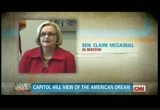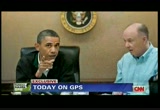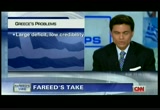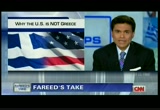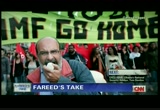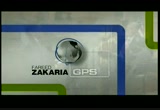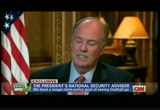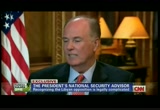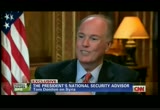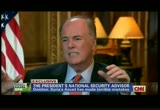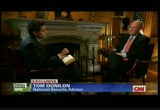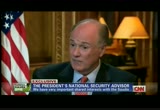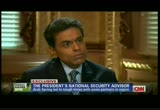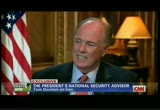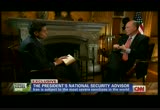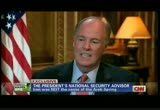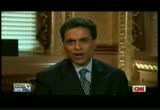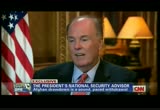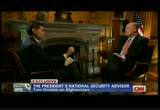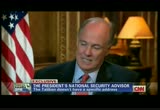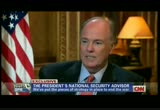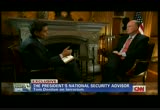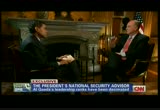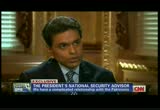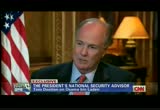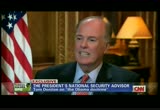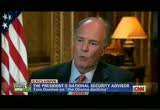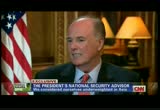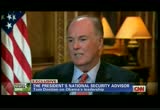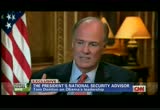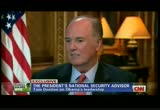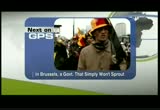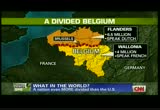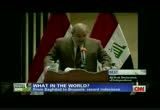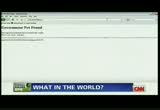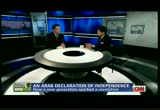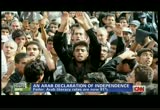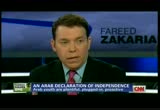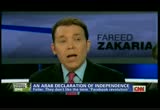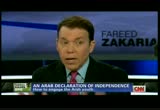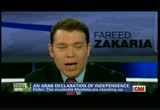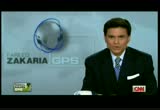tv Fareed Zakaria GPS CNN July 3, 2011 10:00am-11:00am PDT
10:00 am
those who merit it will have unequal outcomes. they will gain more of whatever the american dream is. >> the american dream means to me that a young girl, who grew up going to public schools and a modest household and who works her way through college and law school some day has the incredible opportunity to be a united states senator. >> you can watch all of today's interviews unedited on our website, cnn.com/sotu. we hope you have a wonderful, safe, 4th of july holiday. up next for our viewers in the united states, fareed zakaria gps. this is gps, the global public square. welcome to our viewers in the united states and around the world. i'm fareed zakaria. we have a very special program today. a rare and exclusive conversation with the national security adviser, tom donilon, who many believe is the
10:01 am
president's principle adviser on foreign policy. we will talk about the range of foreign policy challenges confronting the united states and president obama. next up -- a country more politically divided than the united states? really? what in the world. then what's really behind the revolutions in the arab world and who will be the driving force go ing forward? we'll take an indepth look. but first here's my take. watching the return of the greek crisis, many people in america are wondering, are we next? will america face the same financial disaster the greek government faces with a soaring deficit and debt, markets that have lost faith in it and a downward spiral of budget cuts that then further depress the economy? it might but let us understand something really important. america stands in a fundamentally different place than does greece. greece has two problems, a big
10:02 am
budget deficit and markets have lost faith it can ever repay its loan. it is an unproductive economy and cannot generate enough economic growth over the next few decades. in economies, greece has a liquidity problem and a solvency problem. the united states, by contrast, does not have a solvency problem. the american economy remains one of the world's most competitive with many of the fastest-growing companies and most of the advanced industries. it houses thez the best capital markets in the world, the greatest universities, the most dynamic society, america is dem grammatically vibrant. the only rich country that will see the population grow over the next 25 years. america could face a liquidity problem. that is, it could have difficulty financing the debts and deficits if markets lose faith in it. but let's be clear. this has not happened yet. right now the world is lending to american more cheaply than
10:03 am
ever before. the most important difference between greece and america is this, america has many paths to solve this deficit problem. were it to implement the simpson bowls deficit plan for example it would instantly give america among the strongest public finances of any rich country. where congress allowed the bush tax cuts to expire, returning rates to where they were under bill clinton's presidency when america created almost 25 million jobs. that one action would provide the federal government with $3.9 trillion in revenues over the next decade and basically solve the deficit problem. we will still face the long-term problem of entitlements, especially health care costs, like every other rich country but the tomorrow and medium term crisis would be over.
10:04 am
understand, greece, porch chul have no -- massive unending bailouts or a default that could turn in to a lehman brother type event. america's economic problems may have a simple solution, but our political system seems utterly unable to get us to the solution. one party refuses to evy venn think of tax increases. the other will not take seriously the problem of entitlement reform. the result, paralysis and if we do end up losing the trust of markets, and it can happen, it will not be because they lost faith in america, in our economy and our society. but because they despaired at the country's selfish and self-defeating politicians. on july 4th weekend, that's a pretty depressing thought. for more on this you can read my cole lum in this kweek week's "time" magazine or time.com.
10:05 am
let's get started. >> thank you for doing this, tom. >> thank you. good to see you. >> when you look at administration strategy in libya, there seems to be a hope that gadhafi is planning an exit, but are there any actual indications that he is? in other words we are planning for post gadhafi libya, but is he? >> i don't know the answer to that question. i can tell you i this, we have done in libya what we said we were going to do. we had a humanitarian crisis. we put together an effort, working with alternate an coalition partners to deal with that crisis through military force and we were successful in doing that. we have a long-term policy goal of seeing gadhafi go. the people of libya won't be safe an we won't have a stable situation until he does go. we have put together a broad comprehensive set of pressure efforts to see him, to pressure
10:06 am
him to step down. i think those efforts are succeeding, fareed. you have seen increased success by the opposition leaders, militarily, as they have proved toward tripoli. you have seen the standing up of the opposition group in the form of the tnc as an increasingly legit for the people of libya and there is an ineffortability here building as to what the result will be. >> why not recognize the opposition? >> that's a complicated legal issue, frankly. we have said straight up they are the legitimate and credible representative of the libya people. under that guise they have garnered a lot of support from around the world. we have a representative in benghazi who works with the opposition group, the tmc. >> would you be willing to arm them the way that frempl are announcing they are. >> we have provided a broad
10:07 am
range of nonlethal supplies to the tnc and haven't made a decision with respect to lethal assistance. >> you are not ruling it out? >> we haven't made a decision at this point. >> syria. you have in syria a situation where a brutal dictator is engaging in a crackdown that in many ways seems similar to gadhafi but they will not call for the president to resign. >> we have called for a stop to the violence. we have worked with the international community and unilaterally to put increased pressure on him through sanctions and other means. we have indicated to the syrians that it is important for him to either move to some sort of reform agenda or transor get out of the way. that's the strategy we have under taken. >> why are you stopping short of asking him to resign when you did ask mubarak to resign?
10:08 am
>> with respect to -- well, there are different circumstances. we continue to press the syrian leader assad, who has made terrible mistakes. and really has i think misserved and abused his people through the violent actions against them, as they were engaged in peaceful protests. and we'll continue to put pressure on him to have -- to move towards a more representative and responsive government. >> what kind of pressure? >> as i said, i think syria is increasingly isolated in the world. we have been working with syria's neighbors to continue to put pressure on him. the turks have put public pressure on president bashar al-assad and the prime minister who has been voek al about this. we have put the kind of pressure
10:09 am
that i talked about in terms of sanction on the syrians. they are increasingly isolated on this. i think you are seeing some results of the pressure in that president bashar al-assad has indicated he wants to move to a national political dialoguing in some change. i think we have good reason to be skeptical about that give then choices he has made to date but this is the path we are on, continued pressure and isolation to force him to a set of decisions to a more responsive government. >> the president said in his speech on the arab -- that there were points of interest that our values and interests may collide. seems to be nowhere is that more true than in saudi arabia. if there were significant street protests in saudi arabia, would the administration side with the saudi government or the saudi people? >> if this are significant protest it would depend on the circumstance. that is a hypothetical that i
10:10 am
wouldn't want to address, wouldn't be responsible nb my position to address. i can tell you this. the united states and saudi arabia have a set of very important shared interests. we have a shared interest in seeing that no country force in the region seeks or tries to achieve dominance. we have a very important shared interest in seeing a restriction on the weapons of mass destruction proliferation in the region. we have an interest in counterterrorism option operation, in pursuit of peace, in a stable supply of energy and in a healthy global economy. that's the basis on which we work with the saudis. now, we also have, as the president has laid out, a view and a view that we press repeatedly throughout the region on reform. >> is saudi arabia doing enough on political reform? >> well, these nations have to move forward at their -- in
10:11 am
their -- in a way that's consistent with their circumstances. and we, obviously, have a few that, in fact, moving towards more representative, responsive government is the healthiest most stable way to go over the long term. >> you went to saudi arabia. you spent two hours with the king. the reports are he is very unhappy with the united states and with our policy to the arab spring. >> i think that coming out of the beginnings of the arab spring so much uproar, so much turmoil, and fareed, so much change, that we did have some scratchy periods with some partners in the region who were wrestling with this and trying to 0 work through their own views on this. and i would be, again less than candid if i didn't say we had some points of friction or disagreement with some of our
10:12 am
partners in the region. but i think this, and based on my direct conversations with the leadership of saudi arabia about the kinds of kinds of common strategic interest that i laid out earlier in the conversation, i think our relationship is in pretty good shape. our conversation with our partners in the region, including the saudis have been constructive and productive and i can tell you from personal conversations with king abdullah. >> the president campaigned on the idea he would try to negotiate with iran. you came to office, making overtures. they seem to be rebuffed by the iranian leadership and then you had the green movement and now it seems unfair where we are. so my question is does the administration still the want to negotiate with the current iranian leadership and get a deal on the nuclear issue? >> fareed, we offered the iranian government, quite directly a bonn fied offer of
10:13 am
engagement. the government leaders of iran have chosen not to take that up the and i think that their ability to engage that decision really deteriorated after the july elections when it became clear that the government was having a difficult time making that kind of fundamental decision. that path remains open to the iranians to come to the table and deal with the nuclear issues of increasingly serious nuclear issues, not just the united states but the world community sees. there was always associated, though, with our openness to and a bonn that fied offer of engagement, always an associated pressure track and that is the track we have been pursuing during the last period of time. indeed we put additional sanctions on iran the last week or so. iran is now subject to the most severe sanctions in the world. they can't do business with he jat mate banks.
10:14 am
they can't do business in euros offer or dollars. . they need investment to get their antiquated fields and refineries up to speed. essentially the leaders in iran are leading them down a path where great society is becoming an isolated state, a state where they can't interact with the rest of the world in the most basic ways a they are not doing a good service for their people. the pressure track, unfortunately, i think is where we are today. again, with the opportunity for the iranians if they are willing to take it, to have a conversation with us and the world community about their nuclear program. i will say this about the iranians, though. they were not the cause of the arab spring. although some claim that. but they have tried to take advantage of it. in syria, in bahrain and other
10:15 am
places around the region. i think that's going to fail. i think that one of the attributes of the arab spring, i think, has been to draw sharp contrast between what happened and what is a desire for basic freedom and democracy. a sharp contrast between that narrative and the al qaeda narrative of undiffer shated violent opposition with no affirmative plan. and the iranian narrative. i think over the long haul this is a further isolating set of events for the iranians and not something where they will have the advantage. >> when we come back, i will ask tom donilon whether we are drawing down in afghanistan too fast. ♪ my only sunshine ♪ you makes me happy ♪ when skies are grey ♪ you'll never know, dear ♪ how much i love you ♪ please don't take my sunshine away ♪
10:16 am
[ male announcer ] as long as there are babies, they'll be chevy's to bring them home. ♪ it's schwab at your fingertips wherever, whenever you want. one log in lets you monitor all of your balances and transfer between accounts, so your money can move as fast as you do. check out your portfolio, track the market with live updates. and execute trades anywhere and anytime the inspiration hits you. even deposit checks right from your phone. just take a picture, hit deposit and you're done. open an account today and put schwab mobile to work for you. good gravy, bill. our insurance company doesn't have anything like it. magnificent, isn't it? with progressive, it's easy to cover all of your favorite rides. progressive has truck insurance? number one in truck and motorcycle. is that a golf cart? yep. we also cover rvs, boats, atvs. anything else i can help you with?
10:17 am
can i take a ride? you need a ticket -- i'm first! and that's by the water slide. okay. no running. oh, dear. save on all your rides. now, that's progressive. call or click today. any questions? no. you know... ♪ we're not magicians ♪ we can't read your mind ♪ ♪ read your mind ♪ we need your questions ♪ each and every kind ♪ every kind ♪ will this react with my other medicine? ♪ ♪ hey, what are all these tests even for? ♪ ♪ questions are the answer ♪ yeah ♪ oh
10:18 am
we are back with tom donilon, national security adviser to president obama. apparently, general petraeus was urging a slow withdrawal to consolidate the gains of the surge. isn't there a risk that in drawing down too fast you allow the violence to return to afghanistan? there's some indications it's already happening. >> well, the decision in afghanistan was made against a real record of achievement here and from a position of strength. the draw down as you know is not at all precipous. it is a sound, paced withdrawal between now and the end of next summer. when i say that the decision was made from a position of strength, i mean against the goals we laid out, which was done precisely by president obama and those goals were essentially two. one is to dismantle, disrupt and ultimately defeat al qaeda and
10:19 am
we are on the way to doing that through the work in the last 2 1/2 years an the second was to prevent the afghan government, the government from a falling so it is a safe haven for al qaeda and or an associated group again and we are on the way to giveing the afghans the capability of doing that. 10,000 troops this year. after the end of this fighting season, 23,000 the next summer. at that point we will have 68,000 troops focused on the mission. it is against a backdrop of success and progress. it is a responsible, steady way to go about this and end our work on the schedule that we have laid out. from general petraeus's perspective, and he has said this publicly, commanders always want more troops longer. but we believe from the perspective of our national priorities, our global resource allocation that this is a sound way to approach this, again from a position of strength.
10:20 am
>> so a crucial part to allowing afghanistan to end up more stable, even if there are fewer troops is some kind of deal that involves some elements of the taliban coming back to the political system. rasheed in the financial times details the negotiations that have been taking place between the united states and the taliban and they seem to be several for hours and hours, the germans as intermediaries. nothing seems to have come of it. why it is proving so difficult to in some way bring the taliban in to the tent? >> well, for a couple of things to say about that. without commenting on the specifics about the piece in the financial times that you referenced. at the end of the day, this will have to be settled in a political settlement. i think that's clear. why is it hard? there's been a conflict there for a number of years. the taliban is not an enty that works at a specific address. you have to get these things to
10:21 am
a point where you can have a set of reasonable conversations. what we have said, though, quite clearly and the secretary of state said this in her speech earlier this year, that the united states is prepared to work with the afghans to work toward a political settlement and to bring the parties to the table without pre-condition. as the president said in his speech the other day, reconciliation will require the taliban or anyone else who comes to the table, to agree to renounce violence and al qaeda and agree to the constitution. but it is an interactive process if you will, fareed. and i think we have all of the elements of that process underway here. >> are you hopeful that you will see results in the next few months? >> i can't predict that at this point. what i can tell you is that we have put in place the lines of work, the pieces of strategy that we think can bring this war in afghanistan to a close, and bring it to the point where the united states and its coalition
10:22 am
partners can turn security over the the afghans where we would remain in a smaller, enduring presence with the afghans and provide the opportunity, if you will, for a political settlement. those pieces are in place. we have indicated support, straight up support for a political process with the afghans, afghans in the lead and we are pushing the transition process forward. so i think we have put in place the pieces of a strategy toward a political settlement but i can't tell you what time scale in which that could work. >> one of the reasons al qaeda is under so much pressure is that the united states has used unique assets as john brennan recently said which generally everyone accepts this means drone attacks. the pack staen stanny defense military said they will not allow them to use the base anymore. they seethe seem to be indicating they do not want the united states to be conducting drone attacks. have you been told by the pack
10:23 am
stannys that the united states has to curtail or limit its military operations in pakistan? >> a couple of things about that. number one, from the outset of the administration we determined we would launch an aggressive, focused, relentless effort on al qaeda and associated group to disrupt and dismantle them and we have been doing that successfully. the ranks have been decimated as the president said in his speech in afghanistan. and we will continue these efforts. these efforts are focused on al qaeda central in south asia and affiliates around the world. number two. we have the capability to continue to do this. and without commenting on the story you have outlined here, i have every confidence we can and will continue this effort at a pace and intensity that will allow us to put al qaeda on the road to defeat with respect --
10:24 am
with respect to the pakistanis, there is a complicated relationship and there are frustrations and disagreements. we remain engaged with the pakistanis for a number of important reasons related to our national security and i think their ultimate security. they are an important counterterrorism partner for the united states. the pakistanis have lost thousands of military and civilians to the hands of extremists. more extremists groups and individuals have been attacked and taken down in pakistan than any place else in the world. they are important partners of ours. we will have frustrations and indeed we have had an important, difficult set of conversation with the pack stannies since the raid on the osama bin laden compound. but we are committed to working through the issues because we believe it is in our interest to do so.
10:25 am
>> you saw the "new york times" article that detailed using cell phone conversation, what seemed pretty clear evidence that the pakistani military some elements of the pakistani military must have known that osama bin laden was holed up in faisalabad. does your intelligence confirm that? >> i haven't seen any evidence that the pakistani leadership elements in the army, military, intelligence or the political leadership had foreign osama bin laden operating there. i can't confirm or deny what you laid out here. but i haven't seen any evidence that the leadership knew. but i can state the fact. the fact is that osama bin laden operated out of pakistan for six years or so. in an operational role leading al qaeda in a town 35 miles from islamabad. it is clear he had some sport
10:26 am
solve support mechanism there. i don't think at this point know all of the elements of thaf support mechanism and we are working through that. we have tremendous amount of informationing that we recovered from the compound where osama bin laden operated. we continue to work through that. but at this point, i don't know any evidence shown to me that would indicate the pakistani leadership and the military, political military services had foreign knowledge there. but he did operate there for an extended period of time and those questions are being asked in pakistan. >> when we come back, i will ask if there is an obama doctrine and does it involve leading from behind? i don't want you going out on those yet. and leave your phone in your purse, i don't want you texting. >> daddy... ok! ok, here you go. be careful. >> thanks dad. >> and call me--but not while you're driving.
10:27 am
10:29 am
we are back with tom donilon. national security adviser to president obama. 0 is there an obama doctrine? here's how i would answer that question. what we have been about, since the outset of the administration, is to restore united states influence, prestige and power in the world. it went through a period of dem munition. this is a statement of fact and there are a lot of reasons for
10:30 am
it. tremendous investment in iraq. the financial crisis, in some classical international dynamics as other countries rose in the world, for the this reason the united states went through a serious period of dem in addition in the world and we came to office determined to pursue a restoration agenda so we could pursue our interest in the world. we have renewed alliances in asia and europe, engaging in positive, constructive relationships through purposeful work with great powers as a platform from which we can operate. engaging and developing deeper relationships with emerging powers like india, brazil and others and rebalancing our efforts in the world, which is absolutely critical thing for us to pursue. >> explain what rebalancing means. >> it means we looked at where the united states footprint was, what the united states face to
10:31 am
the world was, when we came in to office in january of 2009. and we asked ourselves, where are we under or over weighted? where we are challenged in to putting real work in to the future. and we came to a set of conclusions and have been acting on those conclusions. we needed to finish the military work and we are on track to do that. to have 150,000 troops out of iraq by the end. we saw ourselves as having, needing more strategic direction, intensity and focus on the counterterrorism area and we did that in terms of intensification against allocate and a associated groups. we considered ourselves underweighted in asia. as we looked at the world and our interest and the future, we concluded that, in fact, we did not have the mind share, the diplomatic effort, the resources and presence in asia, given what we have at stake in asia. it wasn't a mistake, by the way,
10:32 am
or an accident. it wasn't about accident that secretary clinton took her first trip to az yarks the first secretary to do that since dean ross in 1961 and most importantly, or very importantly working with china as part of our asia strategy and through an intensive engagement, which includes engaging directly with them intensively. and setting the regional con text through our work to do what we can to ensure a peaceful rise of china. the new yorker had a long article. and it has a quote from an administration official saying we are leading from behind and this a controversial quote. do you think it accurately characterizes obama's foreign policy? to you wish that senior administration official had not
10:33 am
said that to the new yorker. >> i don't think it has anything to do with the obama's foreign policy or the way he approaches his job as the president of the united states. i have -- well, let's put it this way. part of my job is to brief the president every morning and i think i'm now up to 450 of these briefings. that doesn't reflect anything that i have ever heard from president obama and i don't know how that person, whoever he or she was could call themselves an adviser to the president. it is an adviser who's never been in a serious situation with him. >> it says sometimes he seems passive. does that strike you as correct? >> it doesn't strike me as correct. i read brook's column anded that the following reaction to at this time. it doesn't strike me as correct at all with respect to foreign
10:34 am
policy. we are from the outset, as i described earlier, undertaken a very serious effort to rebalance america's activities and look in the world. it is a president who made decisions on the outset about iraq. it is a president who made decisions with respect to afghanistan. in fact we were under resourced and didn't str strategy and direction and tripled the number of troops there and now we are seeing in a position to take down the numbers. it is a president who has had the united states in the lead in terms of counterterrorism. it is a president who, in europe, for example, we had a summit last november. where the president led the effort on missile defense, on getting a common way forward in afghanistan, on a new concept for europe and alternate work there. it is a president who took the lead on taking the g-20 and making it the premier and principle global financial management agency in the world.
10:35 am
time after time i have seen the president come in the situation room and i have been in there hundreds of times and sit down and make these kinds of decisions where american is leading and again the entire effort here is to have america restore its influence and power and authority in the world. of course, i also had the privilege of working closely with this president as he made exceedingly difficult decisions, leading up to the final decision to go after osama bin laden in what was a quintessential presidential moment. by experience with president obama and i'm not, fareed, you know me well enough, i'm not prone to high her bolly. and i work on complicated problems every day and don't see a lot of upsides most of the day but with respect to president obama's leadership that quote in the new yorker piece couldn't be more inaccurate. >> on that note, tom donilon, thank you very much. >> thank you for having me.
10:36 am
>> great to see you. we take our showers with it. we make our coffee with it. but we rarely tap its true potential and just let it be itself. flowing freely into clean lakes, clear streams and along more fresh water coast line than any other state in the country. come realize water's true potential. dive in-to the waters of pure michigan. your trip begins at michigan.org. matter which position i am in i wake up feeling good. it fits you so perfectly... it fits you. you wake up and you're revived and rejuvenated. it's just like wow! tempur-pedic the most highly recommended bed in america. tempur-pedic is rated #1 in comfort. sleep satisfaction. and back support. it fits the curvature of your body but you don't sink in and it is firm.
10:37 am
10:39 am
hello. here's a check on the top story we are following this afternoon. closing argue s are underway today in the casey anthony trial. the prosecution argued that all of the evidence points to the conclusion that anthony murdered her 2-year-old daughter caylee. lead prosecutor jeff ashton characterized anthony as a liar. he said she maintains her lies until they are proven untrue and then replaces them with new lies. the defense will resume its closing arguments after a lunch recess ends. anthony's lawyer conceded his client made bad decisions and should have called police to report caylee's death but he argued the prosecution has failed to prove anthony killed her daughter. anthony listened to the arguments, occasionally crying, glaring and shaking her head.
10:40 am
the prosecution will have a right to praent rebuttal and then the case will go to the jury. anthony is charged with capital murder which could mean the death penalty if she is charged with murder. stay here for the latest developments. fareed zakaria gps continues after this. what makes us number one in motorcycle insurance? we love bikes. we love riders. and most of all, we love to ride. perfect hair every time. leading the pack in motorcycle insurance. now, that's progressive. call or click today.
10:43 am
in the united states, our politicians seem unable to agree on anything. there is one country more than we are. it is so divided the people can't even decide who should run it. belgium has gone through some 385 days without a functioning government. listen to a story that. there might be stories for us. >> when belgium last went to the polls now more than a year ago, the party that won the most seats is called the new finnish alliance. it is main aim to split the country in two, they speak dutch and live unless the north of the
10:44 am
country in flanderers. and the winning withing party wants to take their majority and split in to an independent nation. already the country is divided at every level. almost every public service you can think of, schools, hospitals and they are split along the lines of language. there are french schools and so on. there's brussels. it is the capital of belgium and of flanders, but it is french speaking which is why it is the capital of the european union. so if you partition the country, the french-speaking fall would end up in the dutch speaking flanders. all clear? you wouldn't normally compare belgium with iraq, but that's the country with the previous longest record without a government for 249 days. the iraqi parliament couldn't side decide how to form a government and it took another 40 days for the government to
10:45 am
assume power. it was falling down while taking baby steps of democracy. but the belgiums had more practice. the country gained its independence and started the current form of government in 1830. so you think we divided? now you know about the belgiums but they are still surviving. how? well, with the people of belgium seem to do is grin and bear it. some belgiums quite literally did that. stripping down in the cold winter to make a point. on february 17th, the day when by some counts belgium overtook iraq as the country with the most days without a government. belgiums marked it in style. street parties, deejays turning out music. costumes. they had it all and there was some political messages. in dutch-speaking flanders, locals handed out free french fries and in the french area you
10:46 am
could sip beer. some created a fake government website. it had a message, government not found. the requested government was not count found this country. please come back later. we live in an era of unrest and political uncertainty in many parts of the world. so you have to hand it to the people in belgium. they are taking it in stride with anned a mir rabble sense of humor. we'll be right back.
10:49 am
this weekend in america, we celebrate our revolution, but this year the world has watched the arab revolutions. in awe and wonder and sometimes horror. perhaps the biggest question surrounding the arab spring are what incited it? what will become of it? my next guest says 1 billion muslims under 30 year of age are the key drivers. in his new book he describes what he calls generation freedom as plentiful, plugged in and proactive. he has been on the "new york times" best-seller list with five books on religion and faith. he is joining me now.
10:50 am
>> nice to be here. >> you spend a lot of time during the arab spring with the young people. >> yes. >> is there any simple characterization one can make of them? >> you mentioned in your introduction, i think we can look at them as being they are plentiful, as you mentioned, two thirds of the musl muslim world in general is under 30. 100 million people in the middle east alone. they are plentiful. they are also pinched, meaning they are much more educated than we give them credit. this term arab street has been popular in the west. that's unaccurate. literacy rates are 9%. we're seeing numbers we haven't seen since the asian tigers. they are better educated and there's no opportunity. enter the internet, they are plugged in and particularly for women, the internet has been this opportunity to enter society and enter the fray in a
quote
10:51 am
way they don't normally have. the most important thing is the last one, that is they are proactive. so you've got their parents were largely passive recipients of this sort of deal that the dictators did. will sub siddize your food and jobs and you want question our authority. they are saying, where's our end of the deal and they are pushing back. i write about this young woman, $23 years old and tweet more than anybody i know and wears a veil and she was on a reality tv show based on donald trump's
10:52 am
is it jobs? is it dignity? >> certainly in the egyptian revolution you would hear dignity was a huge word, social justice, freedom. but i think what it is that they want is some sort of sense that they are active participants in creating a better life for themselves. they no longer prepared to be passive. that's what we saw, we see in these revolutions. is action on their part. i think to me i look at this whole thing, they don't like the term facebook revolution. they find facebook as a western technology.
10:53 am
friends. as we know, you don't have to be that close to the facebook friends but the question is back on us on the way facebook gives you the choice, confirm or not now. the choice is ours and what do we want to do. >> do they want to be friends? they sound quite anti-american and feel like american supported the dictators. in general the attitude seems to be one of a great deal of defiance and hostility towards the west. >> i think that they don't want to be a passive smisive to the west. they are certainly concerned about the way we supported the dictators and even in the revolutions we've been on the fence. i would draw distinction as we used to do back in the 80s between the foreign policy dimension of government to government as we saw in the soviet union and people to people -- governments aren't going to solve this. we've been involved in four wars, the war in iraq, muddled ending. war in afghanistan, muddled ending. libya, muddled middle, war on
10:54 am
terror, muddled impact. guns are not going to solve this problem. the days of the martial plan, the idea we pour hundreds of billions of dollars into growth, also not going to happen. it's going to take a different model here and it's going to be ultimately as i say in my book, g to g movement. generation to generation movement realizing that there's change going on there that we'll have to engage on a different level. >> you think that what is going on here is the arab world is catching up with the rest of the world. it's joining the modern world? >> i think that there is a lot of evidence that this is the beginning of that process. i have ever since 9/11 been in the middle of this conversation about can we get along and in every one of conversations people say, where are the muslim moderates. i don't hear them. here they are. this is a group of people standing up. it doesn't say the fundamental.
10:55 am
i'm not saying they have gone away, clearly they have not. they are in control of hezbollah and hamas and still out there exporting. what we are seeing for the first time is the rise of this other story. it's going to give people a clear choice. >> bruce, pleasure to have you. >> thank you fareed. always great to see you. >> we'll be right back. >> so, ah, your seat good? got the mirrors all adjusted? you can see everything ok? just stay off the freeways, all right? i don't want you going out on those yet. and leave your phone in your purse, i don't want you texting. >> daddy... ok! ok, here you go. be careful. >> thanks dad. >> and call me--but not while you're driving. we knew this day was coming. that's why we bought a subaru.
10:58 am
this is, of course, independence day weekend in the united states and that brings us to our gps question of the week. it might seem like an easy one but watch out. the question is, what happened on july 4th, 1776. was it a, congress voted for independence, b, the revolutionary war started, c, the declaration of independence was approved or d., the declaration of independence was signed. stay tuned and we'll tell you the correct answer. go to cnn.com/gps for ten more questions and make sure you check out our website, the global public square. you'll find smart interviews and takes by our favorite experts plus me. don't forget, you can follow us on facebook and twitter.
10:59 am
this week's book of the week is founding brothers by joseph ellis. in my opinion it is one of the best set of stories of the people at the heart of the american revolution. we spend a lot of time in recent weeks debating whether or not to amend the kons constitution. some are angry for talking about it, for which i say have you heard of the first amendment? whichever side you're on, i'm sure you'll feel these essays fascinating. for the last look, how do you get a picasso into a war zone? very, very carefully. you're looking at the $7 million bust in what will be the home for a month. a tiny art museum in ramallah, the west bank isn't exactly the safest place in the world so security precautions to bring it in this weird were extraordinary. the journey from the netherlands to the west bank took 24 hours and a o
212 Views
IN COLLECTIONS
CNN (San Francisco) Television Archive
Television Archive  Television Archive News Search Service
Television Archive News Search Service  The Chin Grimes TV News Archive
The Chin Grimes TV News Archive 
Uploaded by TV Archive on

 Live Music Archive
Live Music Archive Librivox Free Audio
Librivox Free Audio Metropolitan Museum
Metropolitan Museum Cleveland Museum of Art
Cleveland Museum of Art Internet Arcade
Internet Arcade Console Living Room
Console Living Room Open Library
Open Library American Libraries
American Libraries TV News
TV News Understanding 9/11
Understanding 9/11